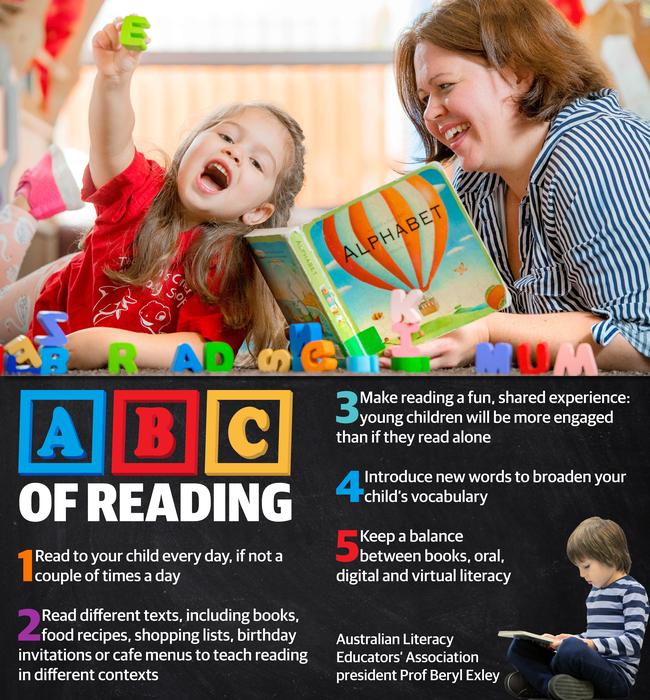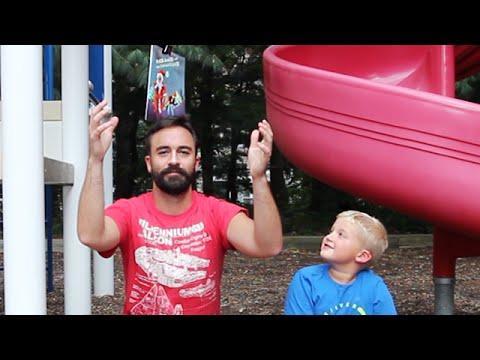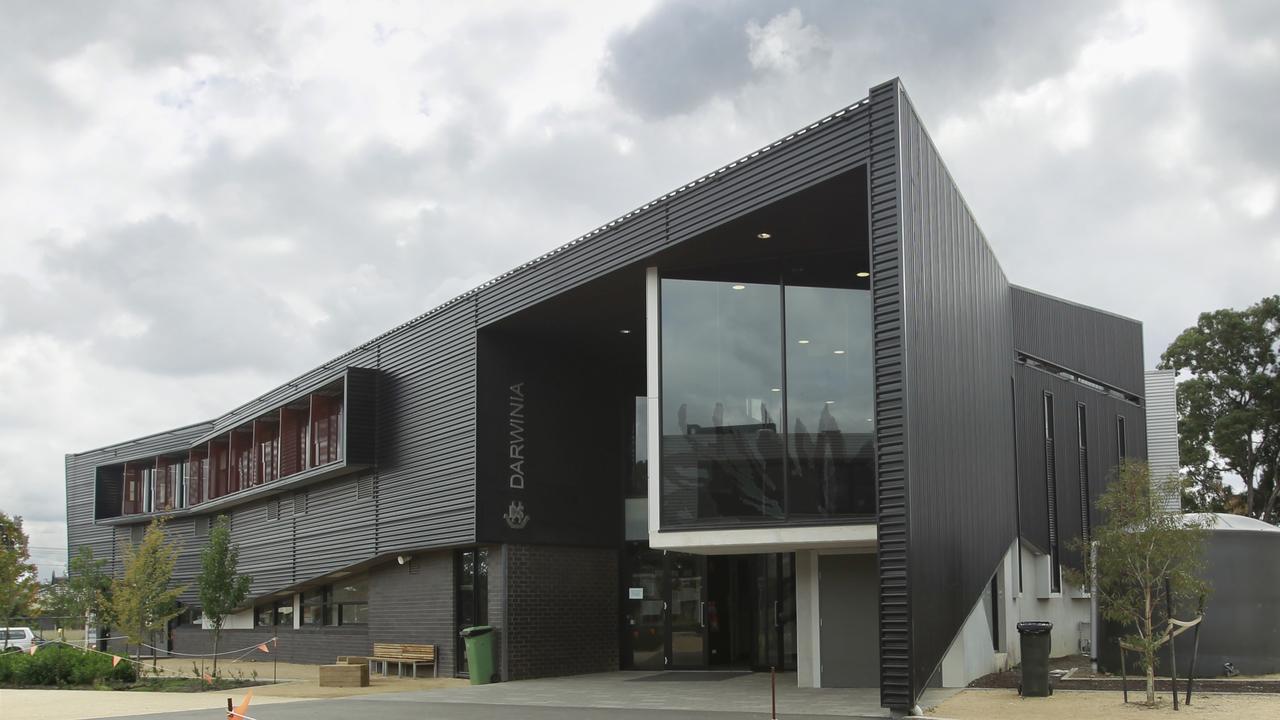Australian school starters lag behind in literacy, international study shows
ONE in two Australian primary students go to schools where preps overwhelmingly can’t recognise or write letters, an international study shows.
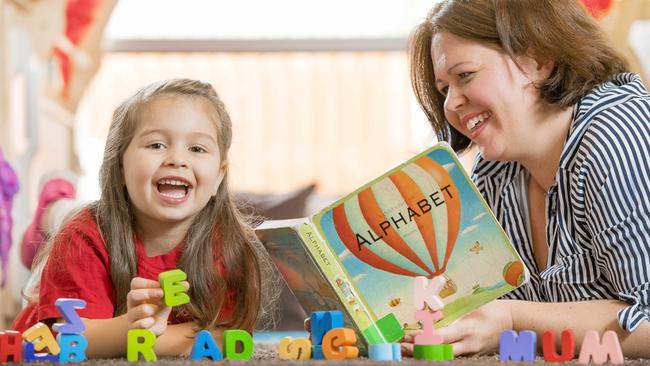
Education
Don't miss out on the headlines from Education . Followed categories will be added to My News.
MORE than half of Aussie kids go to primary schools where preps are overwhelmingly unable to recognise letters of the alphabet, new research shows.
Australian children are falling behind the international average of students beginning school with pre-literary skills, including recognising letters, reading some words, sentences, a story, writing letters or words.
GREAT PICTURE BOOKS TO HOOK YOUR KIDS ON READING
SURVEY: LIBRARIES ON THE LIST OF KIDS’ COOL PLACES
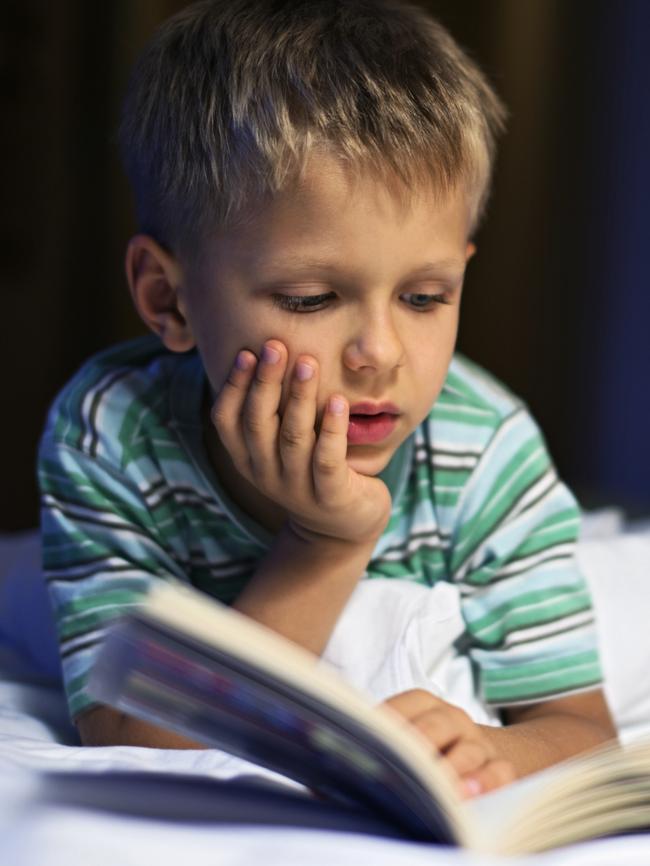
One in two Australian primary students go to schools with low levels of literacy on entry, according to the Progress in International Reading Literacy Study (PIRLS).
That’s well below the international average of one in three students.
And disadvantaged Aussie schools are three times more likely to have preps with low literacy — where less than 25 per cent have skills — than affluent schools.
The study, released by the Australian Council for Educational Research (ACER), surveyed 6341 Grade 4 students from 286 Australian primary schools. The PIRLS report also found:
ONE in four students arrive to school hungry “almost every day”, and were more likely to have intermediate skills than non-hungry kids with high level skills;
ONE in five students were bullied “about weekly” and one in three were bullied “about monthly”, with bullied kids performing worse than those who were “almost never” bullied; and
THERE’S a gap in literacy proficiency in girls (85 per cent) and boys (77 per cent) and of non-indigenous students (83 per cent) and indigenous students (57 per cent).
RESOURCE shortages impact one in three Australian Grade 4 students.
AUSTRALIAN Grade 4 teachers were less qualified than the international average, with 12 per cent having a masters or doctorate compared to 26 per cent worldwide.
ACER deputy chief executive Dr Sue Thomson said the study was a “wake up call” for those who believed children didn’t need literacy skills before they arrived at school.
“There is a perception that’s what school is for,” Dr Thomson said.
“Your child does need to be able to do these things already or they run the risk of being left behind.”
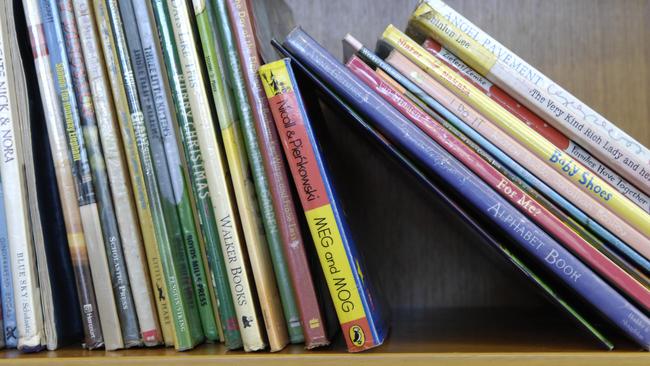
Minister for Education and Training Simon Birmingham said families shouldn’t outsource literacy learning to schools and teachers.
“Parents have to do their fair share to ensure children have the literacy skills they need to succeed,” he said.
“It’s impossible to overstate the value of reading with young children and fostering their love of reading. Spending just 15 minutes a day reading with your children can mean 500 hours that they’ve enjoyed and learnt from before they start school.
“Children need those basic literacy skills in the early years because they’re the building blocks for future school success.”
Mum and early years educator Rachael Klinger said she noticed the “huge impact” of TV, iPads and phones.
“We limit screen time to make sure we instil basic skills like knowing how to turn a page, reading left to right,” said the director of Mulgrave’s The Children’s Centre.
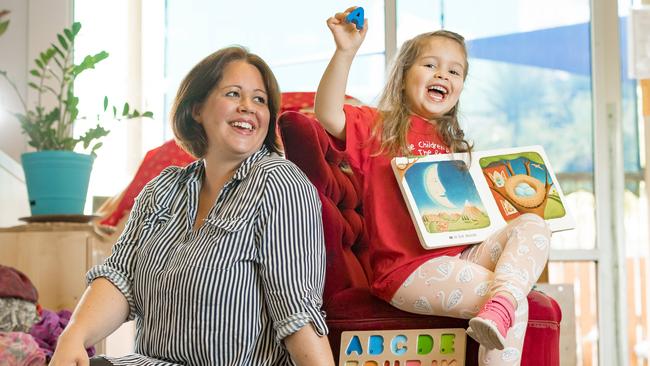
She reads to daughter Mylah, 5, every day and points out texts including street signs, addresses on letters or birthday invitations.
“Reading with her is part of her routine, after her bath we read a story as a family,” she said.
Four in five Aussie kids who took part in the 2016 literacy study achieved the intermediate benchmark, or the national proficient standard — one in five were below the standard.
Australia was ranked 21 of 50 surveyed countries.
Meanwhile, Victoria achieved the best score across all states and territories.
Minister for Education James Merlino said the results showed Victoria was the national leader in education.
“The data is clear, hard evidence that the Education State reforms are producing significant improvements in schools right across the state,” he said.
“Better results for our students mean better life opportunities, regardless of family, economic or social circumstances.”
